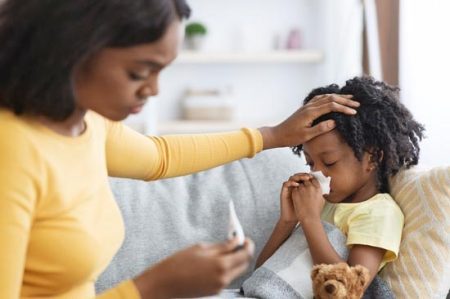The African-American Prostate Cancer Crisis: A Preventable Tragedy
By Johnnie Grant
African-American men have the highest rate of prostate cancer in the world and the lowest rate of survival.
African Americans are two to three times as likely to die of prostate cancer as men of European ancestry. Only 66% of African Americans diagnosed with prostate cancer survive for five years, compared with 81% percent of Caucasian men. Is prostate cancer inevitably more deadly for African-American men? Not according to a senior radiation oncologist at the
Poor medical care, Dr. Wynn says, leads to late diagnosis and inferior treatment once the disease is found. African American men with prostate cancer live as long as Caucasian men after diagnosis if they receive treatment. But too many African American men are not receiving adequate treatment because they aren\’t going to the doctor until they have the late stages of the disease.
"Quality care is essential,” says Dr. Wynn, “but African Americans also must get screened early if we want to reduce the number of prostate cancer deaths in this group.” Prostate cancer screening is crucial for patients at highest risk of developing and dying from the disease at a relatively young age. If anyone must be screened, Wynn says, it is African American men.
Genetics may influence the risk factors; men with first-degree male relatives (father or brothers) with prostate cancer have a two-fold increase in their incidence of prostate cancer. Men with two or three first-degree relatives with carcinoma of the prostate may have as high as a five-to-ten fold increased risk. It is interesting to note that men living in
Diet may also have an influence, according to a study by the
Signs and Symptoms of Prostate Cancer
 |
The following signs and symptoms may be caused by prostate cancer, or by a variety of other conditions. Consult your physician right away if you are experiencing any/all of the following symptoms:
- weak or interrupted flow of urine
- urinating often (especially at night)
- difficulty urinating or holding back urine
- inability to urinate
- pain or burning when urinating
- blood in the urine or semen
- nagging pain in the back, hips, or pelvis
As a man gets older, his prostate may grow bigger and block the flow of urine, or interfere with sexual function. Although an enlarged prostate gland — a condition called benign prostate hyperplasia — may not be life-threatening, it may require treatment with medicine or surgery to relieve symptoms. This common benign prostate condition, which is not cancer, can cause many of the same symptoms as prostate cancer.
In order to know where you need to go, you must first know where you are. Therefore a survey of resources in the
The Asheville-Buncombe Institute of Parity Achievement (ABIPA), in association with NC Office of Minority Health and Disparities and NC Comprehensive Cancer Program are sponsors of the Prostate Screening Initiative.
For more information about cancer screenings and other testing options, contact the
|
PROSTATE CANCER MORTALITY RATE STATISTICS |
|
YEAR |
Caucasian |
Non — Caucasian |
Disparity Ratio |
|
91-95 |
17.6 |
43.2 |
2.45 |
|
94-98 |
34.0 |
68.0 |
2.0 |
|
99-00 |
26.6 |
47.2 |
1.77 |
|
99-01 |
30.1 |
50.8 |
1.69 |
|
99-02 |
26.7 |
66.3 |
2.48 |
|
99-03 |
26.8 |
61.4 |
2.29 |
|
00-04 |
23.8 |
62.0 |
2.60 |
|
From the Asheville-Buncombe Institute of Parity Achievement |
|||
A Personal Testimony: Cancer-Free For Seven Years
I am Cancer-Free for seven years. I must thank God and a friend who insisted I become a part of a study at
It was in my fourth year in the program my PSA began to increase from 2.0 to 3.0. In my fifth year, it went from 3.0 to 6.0. It was then I was told to see my Urologist. I did do this, and after several biopsies cancer was discovered. Several recommendations were made to me about what could be done.
After praying about this matter, I was confident in the method of cure, what I selected was the right one for me. I can say with the medical care, early detection and early treatment my Prostate Cancer was cured. The Grace of God has spared my life that I might share my experience with others.
Marvin D. Chambers- Vice Chairman,
Asheville-Buncombe Institute of Parity Achievement








